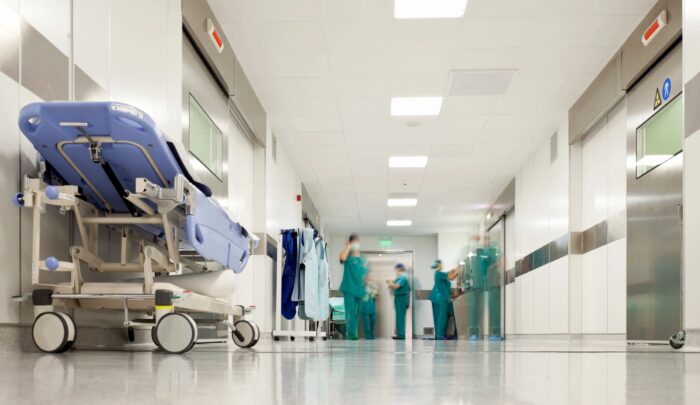A proper management system is one of the many essentials of every industry or business to perform better and achieve previously-outlined goals. If we look at hospital management specifically, it requires a smooth working environment to avoid unfortunate mishaps while treating patients. There are lots of things that need consideration to ensure that a hospital is operating well. If you work in a managerial position for a hospital, here are some tips to improve your working environment.

-
Pinpoint the Problems
You cannot fix a managerial problem if you do not know what it is, be it treatment-related or general hygiene-related. Once you have successfully identified something that needs fixing, you can start to explore possible solutions. Most people are habitual of neglecting the issues. It can become even more problematic for you once your problems start piling up one another.
It is better to look into the issue at the earliest to avoid further turbulence. It saves your time, and this way, the problem is instantly resolved. To simplify this for you, let’s sum this tip up in three words; Identity, Explore, and Solve!
-
Invest in Staff Training
Having a well-trained medical staff is paramount to the delivery of quality patient care. It adds credibility to the hospital and ensures superior services. Creating effective recruitment, training, and development strategies is an essential part of good hospital management.
To help the staff improve their skills, you can get them enrolled in multiple field-related short courses. These courses will polish their management skills and their medical expertise, allowing them to perform better in their respective roles.
Today, the internet has made acquiring additional knowledge and skills extremely easy. An online master in health administration will be handy in training staff members on how to optimize routine practices and systems for better management and patient care delivery.
-
Keep Your Systems Updated
Imagine surfing through a website that does not offer you the information you are searching for. It will not only leave you frustrated, but you will also end up having your precious time wasted.
Now think of the same thing happening within a healthcare facility. There can be many confusions due to misinterpretation if the patient information is not updated regularly. There can be changes in the billing addresses or e-mail addresses of the patients and staff members. Or imagine the online appointment portal not working correctly, leaving patients unable to schedule a visit with their doctor. Such instances can cause even the visitors to form a negative opinion about the hospital.
Keeping the systems updated can lead to a better reputation for the hospital. However, it also holds power to take it down the drain. Make sure medical records are regularly updated to avoid such a mishap.
-
Ensure Better Communication
Better and effective communication detangles a lot of knots that go unnoticed in a poorly managed system. It helps to deal with problems in a more civilized manner. Researchers claim that communication plays an essential role in improving management systems.
Communication allows the person in charge to delegate tasks based on individual skill levels and give valuable feedback to the people working under her/him. Feedback enhances work performances because it makes employees better understand their part in an organization and what is at stake. Without knowing where they lack, employees cannot be expected to improve professionally. This applies to both clinical and non-clinical roles within a healthcare system.
In a hospital, the need for effective communication becomes more significant as practitioners need to be clear while explaining details to their patients. Miscommunication in such instances can lead to adverse effects that may also damage the reputation of the hospital.
Employees that reinforce the importance of communication within a hospital also convey that they are open to discuss any problem that a colleague might be facing. Such practice maintains better management and working environment.
-
Prioritize Your Patients
Because after all, what is your hospital built for? To treat patients, of course. Your hospital must show that you prioritize your patients above all. It will not matter if your hospital has the best communication-strategy, or the most developed-technology if you are not treating your patients well.
However, prioritizing your patients also include managing their families. Ensure that your staff is treating patients’ attendants with respect. If they have questions, then you should answer them effectively. Suppose an unfortunate circumstance occurs, and you have to break the news of a patient passing away. In that case, knowing how to talk to the family and offering your condolences. Is extremely vital.
-
Keep Your Inventory Up-To-Date
A hospital must keep a complete inventory of medicines, oxygen, and each group of blood. People entirely rely on health workers when they are in medical-related distress. Running out of such supplies may not only lead to embarrassment of the visitors you’re dealing with, but it may also become a reason for the patients or families to get angry. More importantly, it will affect the staff’s ability to provide quality care at the right time.
You can also take help from some inventory management tools to help keep track of essential stock and save valuable time. This way, the list of inventory will stay updated, especially in the case of national emergencies.
In a Nutshell
A hospital cannot perform well if it is not well-managed. There are lots of risks involved, and if they go unnoticed and unsolved, they make way for even more significant problems. Take help from the tips discussed above to maintain a good standard for your hospital.


